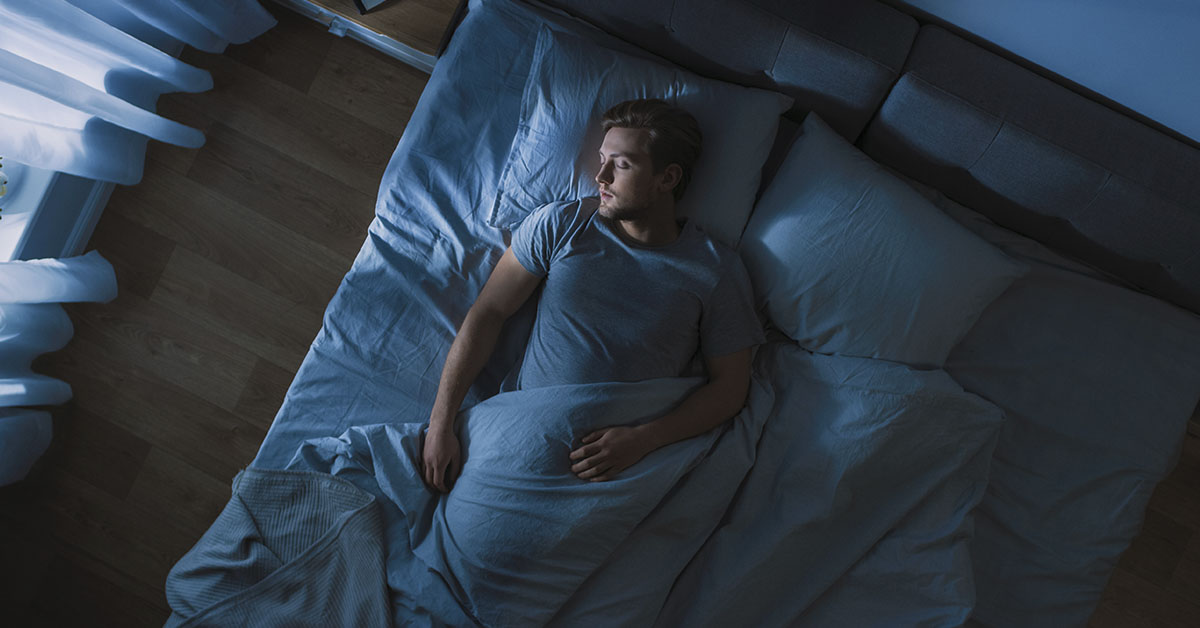This site contains product affiliate links. We may receive a commission if you make a purchase after clicking on one of these links.
Getting a good night’s sleep is essential for maintaining both physical and mental health. Unfortunately, many people struggle with insomnia and other sleep disorders, leading to a variety of health problems and decreased quality of life. However, there are steps you can take to improve your sleep, and one of them is using supplements. This is where longevity doctor Peter Attia comes in. He recently revealed in his podcast the supplements he takes at nighttime to ensure that he gets a good night’s sleep.
Longevity Doctor’s Secret Supplements To Improve His Sleep

Longevity doctor Peter Attia is known for his work studying and promoting ways to improve longevity and achieve optimal health. It is well known that a vital part of health and well-being is sleeping well. The problem is, many people struggle with this. One of the strategies he uses to improve his own sleep is taking three supplements at night. These are ashwagandha, lysine, and magnesium L-threonate. Let’s take a closer look at each of these supplements and their potential benefits for sleep. (1)
Ashwagandha

Ashwagandha is a traditional Ayurvedic medicine that has been used for centuries to promote relaxation and reduce stress. It’s also known for its potential to improve sleep quality, making it a popular choice among people who struggle with insomnia. Ashwagandha works by reducing the levels of cortisol, a stress hormone that can interfere with sleep. It can also help to calm the mind and reduce anxiety, both of which can make it easier to fall asleep.
Dr. Attia takes 600mg of ashwagandha each night, although the recommended dosage can vary depending on the individual. Dr. Yufang Lin from the Cleveland Clinic generally recommends a 500 mg dose of ashwagandha, taken twice a day. It’s important to note that while ashwagandha is generally considered safe, it may interact poorly with certain medications and should be used with caution. (2)
Read: 9 Proven Health Benefits of Ashwagandha
Lysine

Lysine is an essential amino acid that plays a vital role in protein synthesis and metabolism. It’s also been shown to have potential benefits for sleep, particularly in improving sleep quality and reducing the time it takes to fall asleep. Lysine works by increasing the production of serotonin, a neurotransmitter that helps to regulate sleep, mood, and appetite. Serotonin is converted to melatonin, a hormone that plays a key role in regulating the sleep-wake cycle.
Dr. Attia takes two grams (2000mg) of lysine each night, parricually Thorne brand l-lysine. While most people get enough lysine from their diet, certain groups, such as athletes, burn patients, and vegans who don’t eat beans, may need to supplement with lysine. Again, caution should be used when taking lysine, as it may interact with certain medications.
Magnesium L-threonate

Magnesium is a mineral that is essential for many bodily processes, including muscle and nerve function, and bone health. It’s also been shown to have potential benefits for sleep, particularly in improving sleep quality and reducing the time it takes to fall asleep. Magnesium works by promoting relaxation and reducing the levels of the stress hormone cortisol.
Dr. Attia specifically uses Magtein® magnesium L-threonate. This form of magnesium is believed to be particularly effective at crossing the blood-brain barrier and supporting cognitive function. While magnesium is generally safe, it may interact with certain medications and should be used with caution.
Read: Why Up to 80% of Us are Deficient in Magnesium
Not Just Supplements To Improve Sleep

In addition to taking these supplements, Dr. Attia also takes other steps to support his sleep, such as getting into a hot sauna right before bed at least four nights a week and avoiding alcohol. He emphasizes, however, that everyone’s health needs are highly personal, and what works best for him may not work for others. Instead, he encourages people to work with their healthcare providers to develop a sleep support plan that is tailored to their individual needs.
Overall, it’s clear that there are many potential benefits to taking supplements to support sleep, and the specific supplements that Dr. Attia uses – ashwagandha, lysine, and magnesium L-threonate – are all supported by a growing body of research. If you’re struggling with sleep issues, it may be worth considering incorporating these supplements into your sleep support plan, alongside other healthy habits like exercising regularly, avoiding caffeine and electronics before bed, and maintaining a consistent sleep schedule.
Keep Reading: Recognize The Signs Of High Stress: 8 High Cortisol Symptoms
Sources
- “Longevity doctor Peter Attia takes 3 nighttime supplements, including ashwaganda, to improve his sleep.” Insider. Hilary Brueck. October 26, 2023.
- “Benefits of Ashwagandha and How Much to Take.” Cleveland Clinic. October 17, 2022.

